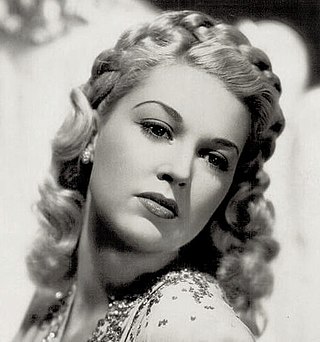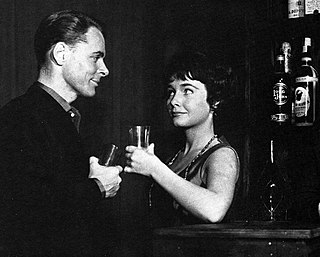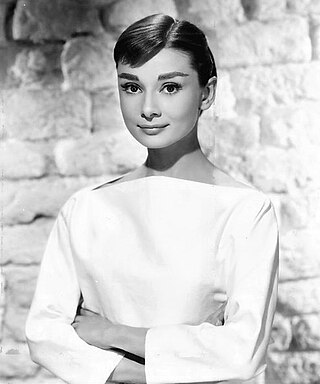
John Uhler Lemmon III was an American actor. Considered proficient in both dramatic and comic roles, Lemmon was known for his anxious, middle-class everyman screen persona in comedy-drama films. He received numerous accolades including two Academy Awards, seven Golden Globe Awards and two Primetime Emmy Awards. He received the AFI Life Achievement Award in 1988, the Cecil B. DeMille Award in 1991, and the Kennedy Center Honors in 1996. The Guardian labeled him as "the most successful tragi-comedian of his age."

The Apartment is a 1960 American romantic comedy-drama film directed and produced by Billy Wilder from a screenplay he co-wrote with I. A. L. Diamond. It stars Jack Lemmon, Shirley MacLaine, Fred MacMurray, Ray Walston, Jack Kruschen, David Lewis, Willard Waterman, David White, Hope Holiday, and Edie Adams.

Billy Wilder was an American filmmaker and screenwriter. He was born in Sucha Beskidzka, Poland, a town in Austria-Hungary at the time of his birth. His career in Hollywood spanned five decades, and he is regarded as one of the most brilliant and versatile filmmakers of Classic Hollywood cinema. He received seven Academy Awards, a BAFTA Award, the Cannes Film Festival's Palme d'Or and two Golden Globe Awards.

Shirley MacLaine is an American actress and author. With a career spanning over 70 years, she has received numerous accolades, including an Academy Award, an Emmy Award, two BAFTA Awards, six Golden Globe Awards, two Volpi Cups, and two Silver Bears. She has been honored with the Film Society of Lincoln Center Tribute in 1995, the Cecil B. DeMille Award in 1998, the AFI Life Achievement Award in 2012, and the Kennedy Center Honor in 2014. MacLaine is one of the last remaining stars from the Golden Age of Hollywood.

I. A. L. Diamond was a Romanian–American screenwriter, best known for his collaborations with Billy Wilder.

Tura Satana was a Japanese American actress, vedette, and exotic dancer. From 13 film and television credits, some of her work includes the exploitation film Faster, Pussycat! Kill! Kill! (1965), and the science fiction horror film The Astro-Zombies (1968).

Billy Wilder (1906–2002) was an Austrian filmmaker. Wilder initially pursued a career in journalism after being inspired by an American newsreel. He worked for the Austrian magazine Die Bühne and the newspaper Die Stunde in Vienna, and later for the German newspapers Berliner Nachtausgabe, and Berliner Börsen-Courier in Berlin. His first screenplay was for the German silent thriller The Daredevil Reporter (1929). Wilder fled to Paris in 1933 after the rise of the Nazi Party, where he co-directed and co-wrote the screenplay of French drama Mauvaise Graine (1934). In the same year, Wilder left France on board the RMS Aquitania to work in Hollywood despite having little knowledge of English.
Jack Leon Sahakian was an American hairstylist and actor.

These Old Broads is a 2001 American made-for-television comedy film directed by Matthew Diamond, written by Carrie Fisher and Elaine Pope, and starring Fisher's mother Debbie Reynolds, as well as Shirley MacLaine, Joan Collins, and Elizabeth Taylor in her final film role. In a 2001 BBC Omnibus documentary about Taylor, MacLaine says that Julie Andrews and Lauren Bacall were originally planned to be in the film. The role of Miriam Hodges was originally offered to June Allyson, who ended up in a cameo instead. The film premiered on February 12, 2001 on ABC.

Manoranjan (transl. Entertainment) is a 1974 Indian Hindi romantic comedy film directed by Shammi Kapoor. It is a remake of Irma La Douce. Sanjeev Kumar plays Jack Lemmon's role, Zeenat Aman Shirley MacLaine's and Shammi Kapoor plays Lou Jacobi's. Hotel Casanova is called Hotel Mauj!. Among the rest of the cast are Paintal, Asit Sen and Dev Kumar.
The 36th Academy Awards, honoring the best in film for 1963, were held on April 13, 1964, hosted by Jack Lemmon at the Santa Monica Civic Auditorium in Santa Monica, California. This ceremony introduced the category for Best Sound Effects, with It's a Mad, Mad, Mad, Mad World being the first film to win the award.

Felicia Farr is an American former actress and model

John Goldfarb, Please Come Home! is a 1965 American comedy film based on the novel by William Peter Blatty published in 1963. The film was directed by J. Lee Thompson. The film was shot in the Mojave Desert.

Joan Shawlee was an American film and television actress. She is known for her recurring role as Fiona "Pickles" Sorrell in The Dick Van Dyke Show, a career-defining turn in Billy Wilder's comedy Some Like It Hot (1959) playing Sweet Sue, the abrasive martinet in charge of Marilyn Monroe's all-girl jazz band, and as the flamboyant Madame Pompey in the 1957 Maverick episode "Stampede" with James Garner. She was sometimes credited under her birth name.

Sweet Charity is a 1969 American musical comedy-drama film directed and choreographed by Bob Fosse in his film directorial debut. It is adapted by Peter Stone from the 1966 stage musical of the same name – also directed and choreographed by Fosse – in turn based on the 1957 Federico Fellini film Nights of Cabiria.

Irma la douce is a 1956 French musical with music by Marguerite Monnot and lyrics and book by Alexandre Breffort. The musical premiered in Paris in 1956, and was subsequently produced in the West End in 1958 and on Broadway, by David Merrick, in 1960. The English lyrics and book (1958) are by Julian More, David Heneker, and Monty Norman.

The David di Donatello for Best Foreign Actress is a category in the David di Donatello Awards, described as "Italy's answer to the Oscars". It was awarded by the Accademia del Cinema Italiano to recognize outstanding efforts on the part of non-Italian film actresses during the year preceding the ceremony. The award was created during the second edition of the ceremony, in 1957, and cancelled after the 1996 event. The award was not granted in 1958.

Jack Lemmon was an American actor. He collaborated with Billy Wilder and Walter Matthau on many films.
Streets of Fire is an Egyptian film released on 12 March 1984. The film is directed by Samir Seif and features a screenplay adapted from the film Irma La Douce, directed by Billy Wilder. It stars Nour El-Sherif and Madiha Kamel.

















